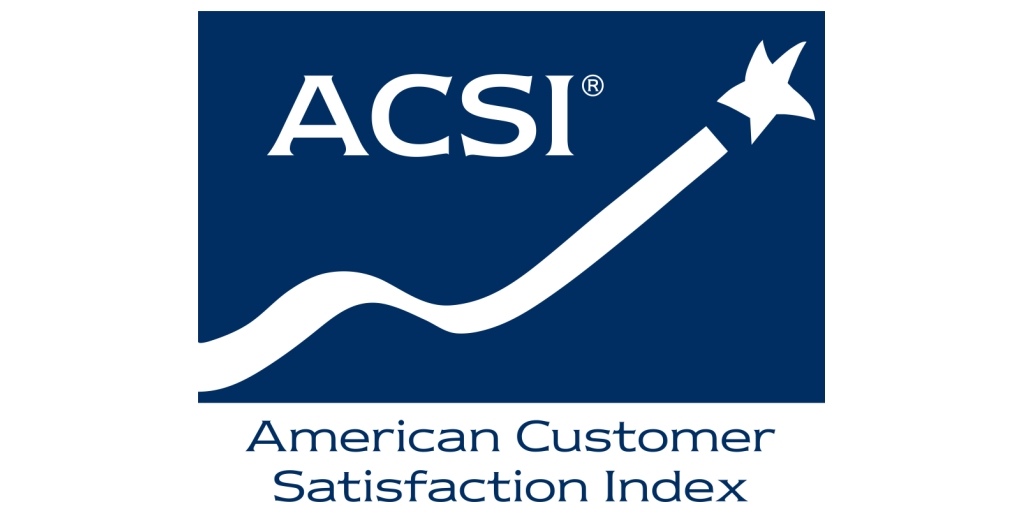ANN ARBOR, Mich.–(BUSINESS WIRE)–#ACSI–According to the American Customer Satisfaction Index (ACSI®) Search and Social Media Study 2024, user satisfaction with search engine and information sites overall is stable with an ACSI score of 80 (out of 100). All the individual search brands tracked by the ACSI see satisfaction score increases or maintain their prior performance, and industrywide, search brands score higher on nearly all customer experience benchmarks measured.
As for social media, the industry improves for the third consecutive year, up 1% to 74, with six of nine individual brands showing rising or steady satisfaction. While these figures are certainly grounds to celebrate, it’s important that brands don’t rest on their laurels.
“It’s true this year’s study found that major search engines and social media platforms largely maintained or improved user satisfaction scores,” says Forrest Morgeson, Associate Professor of Marketing at Michigan State University and Director of Research Emeritus at the ACSI. “However, as artificial intelligence plays a growing role in content delivery and advertising, platforms must ensure they are serving users highly relevant results and ads that respect privacy, or they may see scores decline in the future. How companies balance new technologies with user experience will be important to track moving forward.”
Google extends lead among search engines
Google continues to enjoy the industry’s top spot after increasing 1% to an ACSI score of 81. The market behemoth outperforms the competition in navigation, device rendering, speed, content, mobile app quality, and mobile app reliability.
DuckDuckGo finishes second again with a steady score of 79. The group of smaller search engines (up 1%) and Bing (up 3%) are next at 77, followed by Yahoo!, which climbs 3% to 76. The latter two now enjoy their highest ACSI scores in 12 years.
Study findings hint that new AI-enabled search functionality may drive further improvements in the customer experience. Both Bing and Yahoo! launched significant and heavily touted overhauls to their platforms in 2023, leveraging new AI-enhanced search functionality along with other changes to the user experience. Our data suggest that these efforts are beginning to bear fruit in driving higher levels of satisfaction.
Bing has also begun to see its U.S. market share improve by small but notable margins from February 2023 to January 2024 — by one estimate rising from 6.35% to 7.87%.
TikTok’s time to shine among social media companies
While smaller brands not reported individually improve significantly as a group, rising 7% to an ACSI score of 79, TikTok emerges as the industry leader (among major sites) for the first time after inching up 1% to 78. It squeezes past former frontrunner YouTube, which slips 1% to 77.
TikTok has posted consistent year-over-year gains since being added to the Index in 2021, improving 6 points (for a net gain of 8%) in that span. Its strong ratings underscore the potential risks for politicians seeking to ban the app in the U.S., as satisfaction has risen sharply alongside monthly active users.
Meta enjoys a particularly strong year, with both Instagram (up 4% to 76) and Facebook (up 5% to 69) experiencing worthwhile satisfaction bumps. While these gains still leave Facebook near the bottom of the industry, they put Instagram within striking distance of its principal competitor, TikTok.
LinkedIn, up 1%, ties Instagram and moves past Pinterest, which slips 4% to an ACSI score of 74. After two years of satisfaction improvements, X (formerly Twitter) holds steady at 69 (tied with Facebook for the industry’s second-lowest score). Snapchat, dropping 3% to 68, falls into last place for the first time since entering the Index in 2019.
The results for Snapchat and Pinterest are consistent with some users’ frustrations following recent app changes, such as Snapchat’s fall 2023 update to its Bitmoji generator and Pinterest’s roll out of new features at the start of 2024.
Industrywide, respondents gave modestly higher marks to site navigation and loading speed, content freshness and relevance, photo and video uploading and playback speed, and mobile apps. However, the data reveal challenges around privacy and advertising. Privacy remains steady, yet low, at 73. Experiences with advertising, including new benchmarks about the trustworthiness of ads (67) and personal relevance of ads seen (66), are seen as particular user concerns.
The ACSI Search and Social Media Study 2024 is based on 8,940 completed surveys. Customers were chosen at random and contacted via email between July 2023 and June 2024. Download the study, and follow the ACSI on LinkedIn and X at @theACSI.
No advertising or other promotional use can be made of the data and information in this release without the express prior written consent of ACSI LLC.
About the ACSI
The American Customer Satisfaction Index (ACSI®) has been a national economic indicator for over 25 years. It measures and analyzes customer satisfaction with approximately 400 companies in about 40 industries and 10 economic sectors, including various services of federal and local government agencies. Reported on a scale of 0 to 100, scores are based on data from roughly 200,000 responses annually. For more information, visit www.theacsi.org.
ACSI and its logo are Registered Marks of American Customer Satisfaction Index LLC.
Contacts
Denise DiMeglio 610-228-2102
denise@gregoryfca.com









